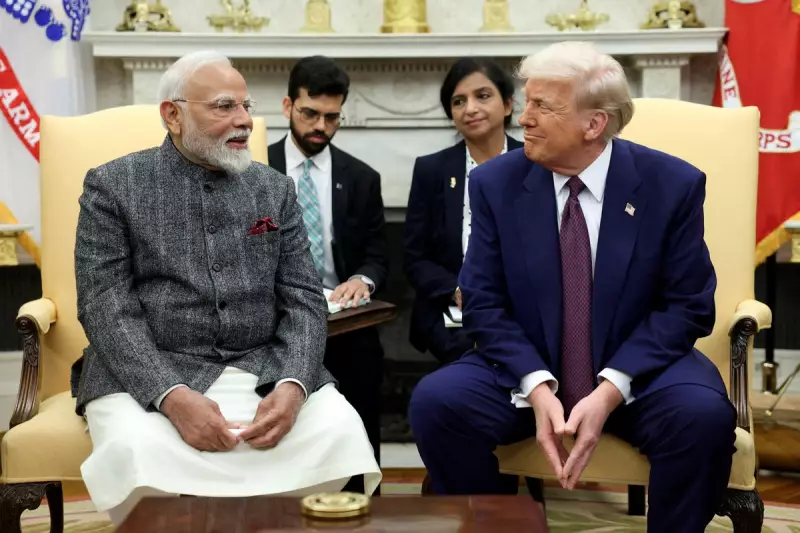
In a move that has captured the attention of geopolitical observers, former US President Donald Trump placed a significant birthday call to Indian Prime Minister Narendra Modi. The conversation, which took place on Monday, has been widely interpreted as a strategic rekindling of ties between the two leaders, with substantial implications for future trade negotiations.
A Strategic Re-engagement
The telephone discussion marks one of the most notable interactions between Mr. Trump and a foreign leader since he left office. During the call, the two figures reportedly discussed the prospect of revitalising trade talks between their nations, a process that had seen considerable progress during Mr. Trump's presidency but has since stalled.
This diplomatic gesture is seen as more than a simple birthday courtesy. Analysts suggest it signals Mr. Trump's intention to maintain and strengthen key international relationships, should he secure a return to the White House in the upcoming election.
The Trade Dimension
Central to their discussion was the potential for a comprehensive trade deal, a long-standing ambition for both countries. The US-India trade relationship is valued in the tens of billions of dollars, encompassing everything from technology and pharmaceuticals to agricultural products and defence equipment.
Key points on the agenda included:
- Reducing trade barriers and tariffs on key exports
- Strengthening cooperation in technology and defence sectors
- Addressing longstanding market access issues for American companies in India
- Countering China's economic influence in the region through strengthened partnerships
Political Implications
The timing of this communication is particularly noteworthy. With the US presidential election campaign intensifying, Mr. Trump's engagement with a key ally like India serves to reinforce his image as a statesman capable of navigating complex international relationships. For Prime Minister Modi, maintaining positive relations with both current and potential future US administrations is a cornerstone of India's foreign policy.
This development suggests that regardless of the November election outcome, India remains a pivotal strategic partner for the United States in the Indo-Pacific region, with trade and security cooperation at the forefront of this crucial relationship.





